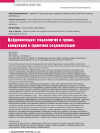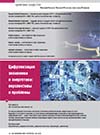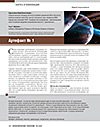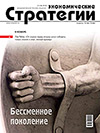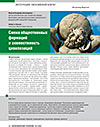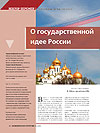Mental Sovereignty
DOI: 10.33917/es-1.199.2025.96-101
Over the past three centuries, economic liberalism has emerged as a global cultural norm that permeates international institutions and business practices. Global turbulence has coincided with degradation of the idea of liberalism; corporate leaders feel the need for change, but don’t associate the transformation goals with exhaustion of the liberal model.
References:
1. Vtulkina N., Firsov A. Khrupkaya, trevozhnaya, nelineynaya, nepostizhimaya [Fragile, Disturbing, Non-linear, Incomprehensible]. Forbes, 2022, 5 sentyabrya, available at: https://www.forbes.ru/forbeslife/476185-vse-v-bani-pocemu-tak-nazyvaetsa-novaa-trevoznaa-epoha-i-kak-v-nej-zit
2. Bashnin A.V., Ozols O.K. Kto upravlyaet IT krupnykh industrial’nykh kompaniy? [Who Manages the IT of Large Industrial Companies?]. Ekonomicheskie strategii, 2024, no 3(195), pp. 60–67, DOI: https://doi.org/10.33917/es-3.195.2024.60-67
3. Belousov L.V. Biologicheskiy morfogenez [Biological Morphogenesis]. Moscow, URSS, 2023, 256 p.
4. Wonga M.L., Cleland C.E., Arend D.J., Bartlettd S., Cleaves H.J., Demarestc H., Prabhua A., Lunineg J.I., Hazen R.M. On the roles of function and selection in evolving systems. PNAS, 2023, vol. 120, no 43, e2310223120.
5. Sharma A., Czégel D., Lachmann M., Kempes C.P., Walker S.I., Cronin L. Assembly theory explains and quantifies selection and evolution. Nature, vol. 622, October 12, 2023.
6. Budanov V.G. Metodologiya sinergetiki v postneklassicheskoy nauke i v obrazovanii [Synergetics Methodology in Post-nonclassical Science and Education]. Moscow, LKI, 2009, 240 p.







